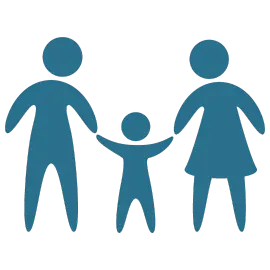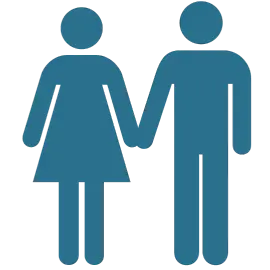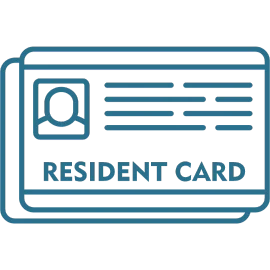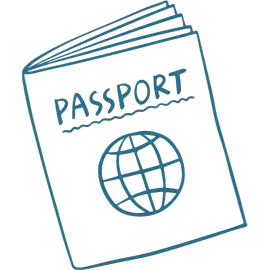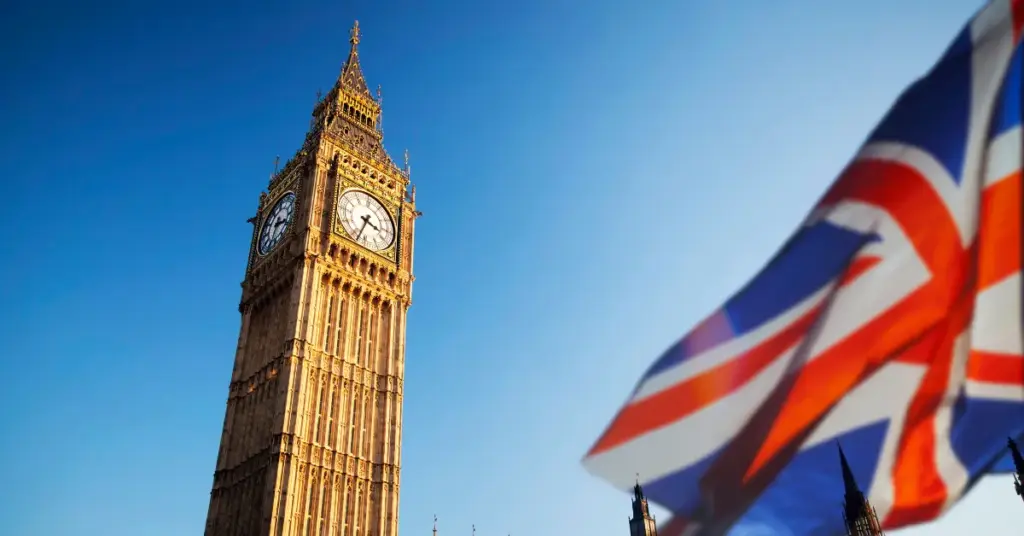Getting married to a British citizen does not automatically provide you with British citizenship. If you wish to acquire British citizenship through marriage, you must apply for naturalisation and meet a specific set of requirements established by the UK Home Office.
In this comprehensive guide, we explain how to qualify, when you can apply, what documents you need, how much it will cost, and what to expect once your application is successful.
Key Takeaways
- You must be married to or in a civil partnership with a British citizen and hold Indefinite Leave to Remain (ILR) or settled status to apply for citizenship by marriage.
- Unlike other naturalisation routes, you can submit your application as soon as you receive ILR; you do not have to wait twelve months if applying through marriage.
- You must have lived in the UK for at least three years, spending no more than 270 days outside the UK in that period and no more than 90 days abroad in the last year.
- You must meet the Knowledge of Language and Life in the UK (KoLL) requirement: pass the Life in the UK Test and prove English language ability (unless you are exempt).
- Applicants must demonstrate good character, sound mind, and adherence to immigration rules.
- The application fee is £1,735 in total (including the citizenship ceremony), with extra costs for biometric data, language tests, or translations where needed.
- It usually takes between three and six months to process your citizenship application. You must attend a ceremony to finalise your status
- You must provide two referees, a record of your travel history, and evidence such as your marriage certificate and your partner’s British citizenship.
- Children’s eligibility for citizenship depends on their birthplace, date of birth, and your status at that time.
- You may apply for a British passport following naturalisation; your certificate replaces your biometric residence permit (BRP).
Can I Live in the UK if I Marry a British Citizen?
Yes, marriage to a British citizen may allow you to live in the UK, but you must first obtain a visa, such as a spouse, civil partner or unmarried partner visa. These visas let you live and work in the UK for an initial period (usually two years and nine months), with a route to extend. After five years’ continuous residence, you may become eligible for Indefinite Leave to Remain (ILR).
To qualify, you need to prove your relationship is genuine, meet financial and English language requirements, and observe restrictions on time spent outside the UK. Each stage is carefully checked by the Home Office.
When Can You Apply for British Citizenship Through Marriage?
You may apply for citizenship by marriage after you have been granted Indefinite Leave to Remain (ILR), Indefinite Leave to Enter, or settled status through the EU Settlement Scheme, and as long as you are married to a British citizen.
There is no requirement to wait twelve months after you receive ILR; you may apply immediately if you meet all other criteria. You will still need to meet all other requirements set by the Home Office for naturalisation, including those related to residence, character, and knowledge.
Eligibility Conditions for British Citizenship by Marriage
Before making an application, ensure you meet the following core requirements:
Marriage or Civil Partnership to a British Citizen
You must be at least 18 years old and legally married to or in a recognised civil partnership with a British citizen. The Home Office requires proof of your relationship, such as a marriage or partnership certificate, and evidence it is genuine and ongoing.
Indefinite Leave to Remain or Settled Status
You must hold ILR, indefinite leave to enter, or settled status under the EU Settlement Scheme. This confirms you are free of immigration restrictions and entitled to remain in the UK permanently.
If you are applying through marriage, you do not need to wait 12 months after getting ILR. You can apply for British citizenship as soon as it is granted, as long as you meet all the other requirements.
Residence Requirement (Three Years)
You must have resided in the UK for a minimum of three years immediately prior to your application. During this period, your total absences from the UK must not exceed 270 days, and no more than ninety days must be spent abroad in the twelve months before applying. You must have been present in the UK on the exact day three years before your application date.
In addition, you must have followed UK immigration rules throughout your stay and have no immigration restrictions at the time you apply. If your time outside the UK is close to the allowed limit, it is a good idea to get advice before applying.
The KoLL Requirement
Applicants must satisfy the Knowledge of Language and Life in the UK (KoLL) requirement, which has two parts:
- Pass the Life in the UK Test
- Show English language proficiency, either by being from an English-speaking country, holding a degree taught in English, or passing an approved English language test
Some applicants, such as those aged sixty-five or over or with a long-term health condition, may be exempt. Medical evidence must be provided for exemptions.
Life in the UK Test
The Life in the UK Test checks your knowledge of British life, including topics like history, government, law, and everyday culture. It has 24 multiple-choice questions, and you need to score at least 75 percent to pass. The test takes 45 minutes and must be taken at an official test centre. You can book it online and choose a location that works best for you.
You can take the test any time before sending in your application. If you have already passed it, such as when you applied for ILR, you do not need to take it again. If you are under 18 or over 65, you do not have to take the test at all.
Each attempt costs £50, and you can retake the test as many times as needed. Official study guides and mobile apps are available to help you prepare.
English Language Requirement
Most people applying must show they can speak and understand English. You do not need to meet this requirement if you are from a country where English is the main language, such as the United States, Canada, or Australia. However, even if you are exempt from the language part, you will still need to pass the Life in the UK Test unless you qualify for another exemption.
If you are not exempt, you must either have a degree that was taught in English (from the UK or a recognised equivalent), or pass a Secure English Language Test approved by the Home Office.
The test covers speaking, listening, reading, and writing. Common providers include IELTS, Pearson, Trinity College London, and LanguageCert. Make sure your test is taken at a centre approved by the Home Office, as only those results will be accepted.
Good Character Requirement
If you are applying for British citizenship through marriage, you must meet the Home Office’s good character rules. This means showing that you have followed UK laws, acted responsibly as a resident, and do not have serious or recent criminal convictions. A prison sentence of more than four years usually leads to an automatic refusal. Even minor offences in the past three years can affect your application.
The Home Office also looks at past immigration issues, such as overstaying a visa or entering the country illegally. You must be honest in your application, as even small problems can cause delays or a refusal.
Sound Mind Requirement
Applicants must be of sound mind and able to understand what it means to apply for British citizenship. This includes being aware of the duties and responsibilities that come with becoming a citizen.
If your spouse does not have the mental capacity to make decisions on their own, you can still apply on their behalf. You will need to explain their situation clearly, provide medical evidence, and show that becoming a citizen is in their best interest.
In some cases, the Home Office may agree to overlook this requirement if you provide enough supporting evidence.
If Your Spouse Is Deceased
If your British spouse or partner dies before you apply, the route based on marriage is no longer available. However, there may be alternative routes, depending on your personal circumstances and immigration history. Professional advice is advisable in these situations.
Application Fee for British Citizenship by Marriage
The Home Office fee is currently £1,605 per person for a naturalisation application, plus £130 for the compulsory citizenship ceremony. This brings the total fee to £1,735.
You may also incur extra costs for:
- Life in the UK Test: £50
- English language test (if required): approximately £150
- Biometric Fees: £19.20
Additional costs may include professional advice, certified translations, or copies of documents.
How Long Does the Application Process Take?
After submitting your application, the Home Office typically takes three to six months to decide. Times can vary if additional checks are needed or documents are missing, so it is important to apply well in advance of any travel plans.
Referees for a British Citizenship Application
Your application must include two referees who can confirm your identity and support your application. Both must have known you for at least three years. One must be a professional (such as a teacher, GP, or accountant). The other must be a British citizen aged at least twenty-five or holding a professional role.
Referees must not be related to you, your adviser, or work for the Home Office, and must not have recent criminal convictions.
British Citizenship by Marriage Application Process
Once you meet the eligibility requirements, you can begin your application online using Form AN, which is the main form used for naturalisation. This form asks for detailed information about your background, immigration status, your relationship with your British spouse, and the time you have spent in the UK.
Take your time filling out the form and make sure all the information is accurate. Pay close attention to dates, especially those related to your immigration history, time spent outside the UK, and work details. If any part of your application is unclear or incorrect, it could lead to delays or even a refusal.
After you submit the form and pay the fee, you will need to book a biometric appointment at a UKVCAS service point. At this appointment, your fingerprints and a digital photo will be taken. If you already have a biometric residence permit, you must include it with your application.
You will also need to upload or send supporting documents, including your marriage or civil partnership certificate. These documents are explained in more detail in the section below.
Most people get a decision within three to six months, but some cases can take longer depending on how complex they are or if more document checks are needed.
If your application is approved, you will be invited to attend a citizenship ceremony. At the ceremony, you will make an oath or affirmation of loyalty to the United Kingdom. This step is required, and if you do not attend without a good reason, your application may be cancelled. You have 90 days to book and attend the ceremony.
Once the ceremony is complete, you will receive your certificate of naturalisation. You must then send your old biometric residence permit back to the Home Office within five working days, or you may be fined up to £1,000.
Supporting Documents for Your Application
When applying for British citizenship through marriage, you will need to provide several documents to prove your identity, immigration history, relationship, and time spent in the UK. Below is a guide to what you should prepare:
- Proof of immigration status: You will need to show that you have indefinite leave to remain or an equivalent status. This could be your biometric residence permit, a permanent residence card, or confirmation of settled status under the EU Settlement Scheme.
- Proof that you meet the KoLL requirement: This means showing you passed the Life in the UK Test and, if required, a valid English language qualification. This could be a Secure English Language Test or proof that you earned a degree taught in English.
- Identification documents: A valid passport is best, but you can also use a travel document or a birth certificate if a passport is not available.
- Marriage or civil partnership certificate: This proves your legal relationship to a British citizen, which is essential for this route to citizenship.
- Proof that your partner is a British citizen: You will need to include documents such as their British passport, certificate of naturalisation, or certificate of registration.
- Travel and absence records: You must list all the time you have spent outside the UK during the qualifying period. Be ready to provide dates, destinations, and reasons for each trip abroad.
- Past UK visas or residency documents: If you held other UK visas before getting indefinite leave to remain or settled status, include those documents to show your full immigration history.
- Two referee declarations: You must have two referees complete and sign the official declaration forms. They must meet the Home Office’s eligibility requirements.
- Any documents showing a legal name change: If your current name is different from the one on your ID or marriage certificate, include legal proof of the name change such as a deed poll or court document.
If any of your documents are not in English or Welsh, you must provide certified translations. It is a good idea to keep both digital and paper copies of everything you send with your application.
What Happens After a Successful Application?
Before your British citizenship is complete, you must attend a citizenship ceremony. This is a required step and must be booked through your local council within three months of receiving your invitation.
At the ceremony, you will take an oath or make an affirmation of allegiance. You will also confirm your commitment to the values and freedoms of the United Kingdom. Once the ceremony is finished, you will receive your official certificate of naturalisation.
After you become a British citizen, your biometric residence permit is no longer valid and cannot be used for travel. Until you get a British passport, your certificate of naturalisation is your main proof of citizenship. If you decide not to apply for a passport, you can request a certificate of entitlement to show your right to enter the UK.
Applying for Your First British Passport
Once you have completed the naturalisation process, you can apply for your first British passport. This will serve as official proof of your citizenship and allows you to travel freely without needing a visa to re-enter the UK.
To apply, you’ll need your certificate of naturalisation, a valid photo ID, and documents that confirm your identity and UK address. A standard adult passport is valid for 10 years and is widely accepted for travel and identification purposes both within the UK and internationally.
Are My Children Eligible for British Citizenship?
If your child was born in the UK and you were a British citizen or had settled status at the time, they may already have British citizenship. If not, they may be eligible to register, depending on your status and their circumstances. The rules can be complex, so taking legal advice is advised for families.
What If Your Application Is Refused?
Having your application rejected can be frustrating, but it doesn’t always mean the end of the road. While you don’t have a legal right to appeal a refusal under nationality law, you may still request a review if you think the decision was made in error.
The refusal letter will explain why your application was unsuccessful. Common reasons include not meeting residence or good character requirements, submitting incorrect or incomplete documents, breaking immigration rules, or being outside the UK on key dates during the qualifying period.
In certain cases, the Home Office may agree to reconsider the application if there is evidence that an error occurred during the review process, such as applying the wrong rules or overlooking key information.
If you’re not sure how to respond to a refusal, it’s a good idea to speak with an immigration adviser. They can help you understand whether a review is worth pursuing or when you may be eligible to try again.
Tips for a Successful British Citizenship Application Through Marriage
- Check all eligibility criteria before applying, including your residency period, immigration status, and knowledge requirements.
- Gather documents in advance and ensure they are up to date.
- Choose referees who meet the Home Office criteria and are willing to complete the forms.
- Ensure all information matches previous records and is consistent across documents.
- Allow enough time for each step of the process.
- Seek professional advice if you are uncertain about any part of your application.
Get Expert Help with British Citizenship Through Marriage
At JPS Immigration, our experienced team helps clients with every stage of the British citizenship process. We confirm eligibility, help you gather and review documents, and provide guidance for a smooth application.
Contact us today or submit an enquiry via our website to discuss your case with a specialist.
FAQs
If I am married to a British citizen, can I get a British passport?
No, marriage to a British citizen does not grant automatic eligibility for a passport. You must complete the required visa and settlement process, hold ILR, then be approved for citizenship before applying for a British passport.
How soon can I apply for a British passport after gaining citizenship?
As soon as you receive your naturalisation certificate, you may submit your passport application.
How long does the citizenship application process take?
Most applications are processed in three to six months.
What happens at a citizenship ceremony?
You must attend a citizenship ceremony, take the oath or affirmation of loyalty, and receive your certificate of naturalisation.
What can I do if my citizenship application is refused?
Although there is no formal appeal, you may request reconsideration if you believe there was a Home Office error, or you can reapply after correcting any problems.
Why should I seek professional advice when applying?
An immigration advisor can help make sure your application is complete, accurate, and fully supported, avoiding delays or refusals due to mistakes or missing documents.
